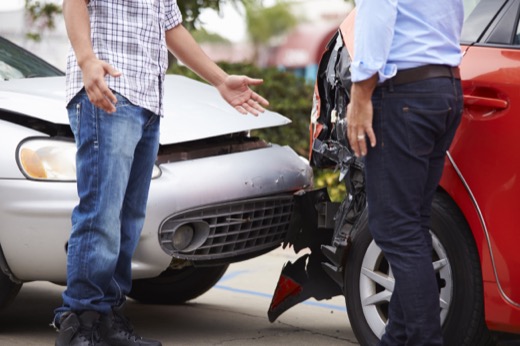People are on daily medications for a wide variety of things. In fact, everything from oral contraception to epilepsy medication is pretty standard. But what makes it unreasonable or unsafe for someone to operate a vehicle? Will taking prescription medication for pain relief after a trip to the dentist make it unsafe to drive?
Always consider the risks when you get into a car. There are times when being tired, irritable, or experienced side effects from a medication make it unreasonable to do anything that involves leaving the house, although many people feel “fine” and choose to drive anyway. Car accident attorneys have heard this many times.
Taking Prescription Medication can Result in Reactions and Side Effects that Influence Driving
There are key side effects that trigger pharmaceutical companies to warn against operating heavy machinery, including vehicles. These side effects that bring up this warning include drowsiness or sleepiness, vision impairment, dizziness or disorientation, fainting, slowed movement speed, lack of focus, inability to maintain attention, nausea.
These side effects can come from rather common prescription medications, but don’t affect everyone. That makes it difficult for police to understand how to treat the situation after a crash when someone is on medication that comes with these side effects. It really could come down to someone saying that they didn’t feel the side effects, even if they did.
Here it is important to be honest with your physician and pharmacist. If a medication is making you too lethargic or unfocused to drive, you might want to consider alternative options. This level of communication will become part of your treatment.
Is it Possible to be Told Not to Drive?
Can a physician or pharmacist tell you not to drive? Absolutely they can, and there are some instances where it is illegal for you to operate a car because of prescription medication. Essentially any drug labeled with “Do not use while operating heavy machinery” can land a person in hot water if the crash was their fault.
However, some conditions are the reason for being told not to drive, rather than the medication. For example, someone newly diagnosed with MS may not be safe on the road if they’re still experiencing blackouts, seizures, or similar major symptoms. When they and their medical team find a medication that balances and works well with them, then driving would hopefully no longer be a concern.
Alternatively, conditions such as epilepsy have different requirements. Impairment or preexisting conditions must be reported to the DMV through the driver, not the attending doctor. Each person agrees under oath when they file for their license or renewal whether or not they experience seizures or other disabilities/diseases which impact driving.
Ohio does not have an extended period where a person must be “seizure-free” but instead leaves it to a medical review. The state will ask that a person undergo a medical review, and the doctor will identify the condition as dormant, under medical-control, or not under control. Usually, people with a condition that may affect their driving will have yearly updates that require medical reviews each time.
It Depends on the Prescription and the Person
Even over-the-counter medication can make it unsafe to drive. But, speaking on the topic of prescription medication, there are some advantages.
For example, someone starting an anti-depressant such as Zoloft may experience disorientation, slowed movement, and slower reaction times. These are clearly conditions that would affect a person’s ability to drive. However, their physician can work with them to minimize the impact or possibility of these side effects.
If you’re on medication and worried about how it affects your driving, talk to your doctor. Ask them to start with the lowest dosage possible and work upward from there as necessary. Additionally, they may be able to suggest ways to minimize side effects, including diet and exercise changes. Even how much water you drink during the day can impact the extent of the side effects.
Contact an Attorney Whenever You’re In Doubt About Taking Prescription Medication and Driving
If the person who hit you was under the influence but claimed that it’s a medical requirement for their treatment, you may feel like you’re in a grey area. However, the law is pretty clear cut on when it is and is not okay to drive while taking prescription medication.
At Ohio Car Accident Lawyers, you can find a skilled, able, and friendly attorney to guide you through the process of your car crash claim. From making a claim that the other person was under the influence, to fighting to compensation that you deserve, you’ll have help the entire way.

